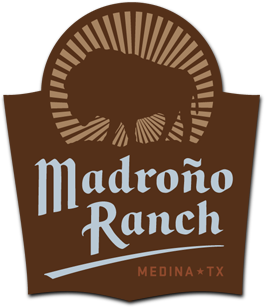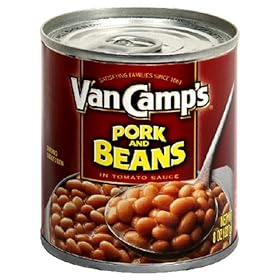Happy New Year! This week, sparing no expense as we recover from the excesses of the holiday season, we have once again secured the services of a top-shelf guest blogger. In this post, Tito Kohout reflects on some of the challenges of rethinking our societal infatuation with “easy” foods.
I start feeling self-righteous when I see some greasy, fatty dude walking out of Wendy’s with a greasy, fatty Number 5 combo. He doesn’t know anything about anything, I say to myself as I pedal furiously past him. I bet he voted for someone I find loathsome. I bet his taste in music is as bad as his taste in burgers. I bet he’s the kind of apathetic American who is, every day, moving us closer to breaking the seventh seal and unleashing some kind of very big and very biblical evil on the world. Then my stomach rumbles and I think that it’s only another dozen blocks until I’m home and can slather some Fiesta-brand peanut butter on my Fiesta-brand wheat bread fried in Crisco until it’s moist and crispy and freaking delicious.
Yeah, that’s stupid. Like really stupid. Like Titanic stupid. Here I am, with my refrigerator full of food from my neighborhood Fiesta Mart (which resides at pretty much the opposite end of the foodie spectrum from Central Market), looking down on some poor guy just trying to grab an easy meal. The Earl Campbell sausages I mix with nameless cheddar cheese in my eggs aren’t any better, and I know it. After all, my parents write this blog, and organic, local, slow, humane food—what I’ll refer to as “good food” from here on in—is obviously important to them, although they weren’t always strictly consumers of good food; I distinctly remember frozen fish sticks being one of my favorite childhood dinners.
So where did they go wrong, raising a son who’s dumb enough to eat seventy-nine-cent cans of pork and beans on a regular basis? The answer is nowhere. I know that Fiesta’s meat comes from factory farms and its vegetables are probably shipped in from heaven-knows-where covered in pesticides. I know how wrong that is. But, man, it’s easy.
I’ve got the expenditures of your typical dumb male college student: rent, utilities, rugby fees, beer, and, of course, food in large quantities. To more easily afford these things, I buy the cheapest food I can. I’m not much of a cook—a few days ago, I suffered a pasta disaster of substantial proportions—but even the simple things cost more at the farmers’ market than at the supermarket.
But even more than the financial price, the price in effort puts me off. I could find ways to save money. I could get a plot in the community garden a block from my house. I could put myself out on the tutoring circuit again. I could sell my car, since I barely drive it anyway. I could be a better citizen of the earth, but I know I’ll keep on eating seventy-nine-cent cans of pork and beans as long as it’s convenient.
The other day, my older sister told me that Americans spend a smaller proportion of their incomes on food than the inhabitants of any other country. I believe her, both because she’s generally pretty well informed for an older sister and because it’s believable; I certainly work to spend less time and money on food. The question is, “How do we not only make good food competitive in prices with the other stuff, but make the U.S. of A. and the world realize that good food isn’t some weird and mildly threatening eccentricity reserved for rich, white, liberal yuppies and scary people from the lunatic fringe?”
I read my parents’ blog posts, and this is the part where they generally propose a solution to the problems they’ve outlined. I got nothing. I just know that good food is important for the survival of our species and of many others, and that we—not we the consumers of good food (I don’t include myself), but we the people—need to make good food not just a societal priority but a societal norm. Otherwise, we’re all in deep trouble, and I’m going to keep on eating Earl Campbell’s tasty, questionable, preservative-packed sausages.
What we’re reading
Heather: Marilynne Robinson, Absence of Mind: The Dispelling of Inwardness from the Modern Myth of the Self
Martin: Jane Leavy, The Last Boy: Mickey Mantle and the End of America’s Childhood


Your offspring may need to be invited to contribute to your blog more frequently – loved this Tito!